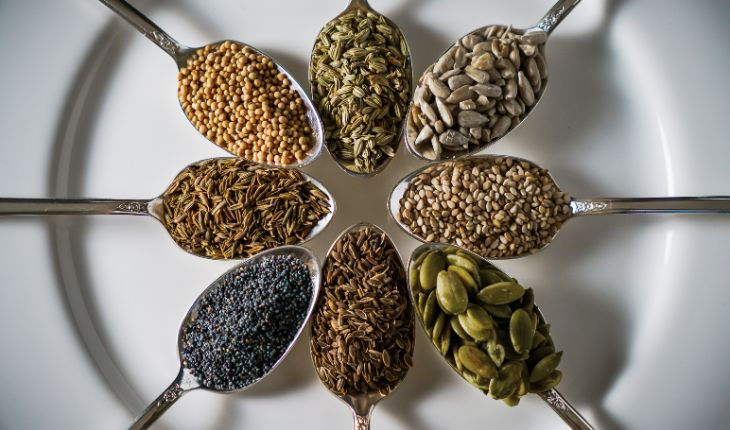The Future of Farming Lies in Advanced Seeds
- Sophia Grace
- Aug 14, 2025
- 3 min read
Seeds are the foundation of agriculture, carrying within them the potential to feed populations, sustain economies, and drive innovation in food production. They are not just agricultural inputs; they are the result of decades of breeding, research, and technological advancement aimed at improving crop yield, resilience, and nutritional value. As farmers face the twin challenges of climate change and increasing food demand, the role of high-quality seeds has never been more critical. From hybrid varieties to genetically enhanced strains, the seed industry is shaping the future of farming with a focus on productivity, sustainability, and adaptability.

Insights from Expert Market Research
According to Expert Market Research, the seeds industry is witnessing consistent growth due to rising demand for high-yield and disease-resistant crop varieties. The expansion of the food processing sector, growing awareness about sustainable agricultural practices, and the need for climate-resilient crops are driving innovation in seed development. Expert Market Research highlights that the adoption of hybrid seeds, biotechnology in agriculture, and precision farming techniques is accelerating productivity gains. Additionally, the increasing cultivation of cash crops and the expansion of horticulture are creating lucrative opportunities for seed producers. The industry’s evolution is being supported by both private investments and government initiatives aimed at ensuring food security and agricultural efficiency.
The Shift Toward High-Performance Seeds
Farmers are increasingly turning to hybrid and genetically improved seeds to maximize productivity. Hybrid seeds offer advantages such as higher yields, uniformity in crops, and better tolerance to pests and diseases. Genetically engineered seeds, on the other hand, can be designed to withstand extreme weather conditions, reducing the risks posed by drought, floods, or temperature fluctuations. These innovations are crucial in helping farmers adapt to changing climates while maintaining consistent output.
Seeds as a Driver of Sustainable Agriculture
Sustainability is becoming a central priority in agricultural development, and seeds are at the forefront of this shift. Drought-tolerant seeds reduce water usage, while pest-resistant varieties minimize the need for chemical pesticides, thereby lowering environmental impact. Organic seeds, which are cultivated without synthetic fertilizers or pesticides, are also gaining popularity among farmers catering to the growing organic food market.
Moreover, improved seed varieties are enabling crop diversification, allowing farmers to grow alternative crops that can restore soil health, reduce dependency on monocultures, and open up new income streams.
Regional Insights: Diverse Patterns of Seed Adoption
The use and adoption of advanced seeds vary widely across regions, influenced by agricultural practices, climate conditions, and market demands. In North America, the adoption of genetically modified seeds is widespread, driven by large-scale commercial farming. In Europe, strict regulations on GM seeds are encouraging the growth of conventional and organic seed markets.
Asia, with its vast and diverse agricultural landscape, is emerging as a key consumer of hybrid seeds, particularly in countries like India and China, where government programs support seed innovation. Africa is increasingly adopting improved seed varieties to address food security challenges, while Latin America’s strong focus on cash crops such as soybeans and maize is fueling demand for specialized seed types.
Technology Transforming Seed Development
The integration of advanced technology in seed breeding is revolutionizing agriculture. Precision agriculture tools allow farmers to select seeds based on soil health, climate, and market needs. Gene-editing techniques like CRISPR are enabling scientists to develop seeds with enhanced traits more quickly and efficiently. Digital platforms are also helping farmers access seed information, track crop performance, and connect directly with suppliers, streamlining the decision-making process.
The Role of Seeds in Food Security
Food security depends heavily on the availability and quality of seeds. Improved seeds can significantly boost crop yields, ensuring adequate food supplies for growing populations. They also help reduce post-harvest losses by producing crops with better storage qualities and resistance to spoilage. Governments and NGOs are recognizing this, investing in seed banks, research facilities, and distribution networks to ensure farmers have timely access to quality seeds.
Growing Demand for Specialty and Horticultural Seeds
The rising popularity of fruits, vegetables, and ornamental plants is creating opportunities in the horticultural seed segment. Urban farming, vertical agriculture, and greenhouse cultivation are expanding rapidly, supported by the development of seeds tailored for controlled environments. Specialty seeds for niche crops, such as herbs, medicinal plants, and exotic vegetables, are finding a growing market among health-conscious consumers and gourmet food producers.
The Road Ahead: Seeds as Catalysts for Agricultural Transformation
The future of agriculture will be shaped by seeds that are more adaptable, sustainable, and productive. Collaboration between seed companies, research institutions, and policymakers will be key to addressing the challenges of food demand, environmental change, and resource constraints. As the industry continues to innovate, farmers will have access to seeds that not only improve yields but also contribute to resilient farming systems capable of sustaining future generations.
Seeds are, quite literally, the starting point of the food chain. By investing in their development and distribution, the agricultural sector is investing in a future where food is abundant, nutritious, and sustainable.









Comments